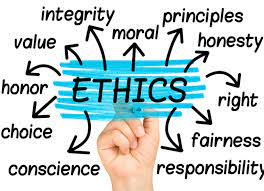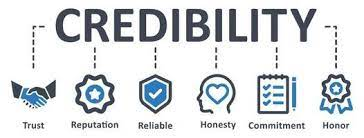This article is based and drawn on my Scrum Master, Product Owner, and Agile Coach experiences over a period of many years across different domains and industries and not to forget the geographies that I have worked in.
Beyond my fundamental training on Scrum and Agile, I had the privilege of working with and learning from highly competent, ethical professionals who had provided me ample opportunities to learn, make mistakes, and re-apply my learnings. People with whom I have been associated have practiced “Fail Fast” and showed me directions on how to prepare for the future. They have guided me to deal with stakeholders who need to be managed at a different level (as each of them was a different personality – No One size that fits all)
Everyone wants to succeed, but regardless of many forms of success, one must also be successful in dealing with others.
While there are many attributes that contribute to the growth and behavior of an individual, I have listed down what worked for me and helped me in my agile coaching journey.
Positive personal effectiveness is achieved when we can ethically win confidence, respect, and cooperation in our dealings with others (they could be your Seniors or Juniors).
Scrum Master’s job is to work with others; they cannot delegate this nor can they avoid the required interaction. For Scrum Masters to be successful, they should practice the below mentioned nine people skills for ‘Self-Improvement and Effectiveness’.
- Personal Ethics
- Adaptability
- Tact
- Creditability
- Intercommunication
- Persuasiveness
- Objectivity
- Initiative
- Self-Discipline
From the above one would spot over-lapping approaches across many skills like Intercommunication and Persuasiveness vs. Tact.
Personal Ethics
It is thefirst people related skill that any individual should develop, and it applies to a Scrum Master also. It is basic to establish and maintain a high standard of excellence in the practice, life and behavior. Good character, stemming from good ethics, is a quality of leadership and it distinguishes any leader from others. It inspires well-founded and reciprocal confidence and trust of others in you.
I learnt in my career that the best and most successful people at the top (like Ratan Tata) were those who displayed and practiced personal ethics and took personal responsibilities toward their own people, project, organizations, employees, and society at large.
Consistent reliance on personal ethics should be our guiding principle in our personal encounters, which would inspire others to follow the same pattern and principles.

This should be the default element of any Scrum Master and bare minimum traits to have. There cannot be any compromise on this front.
Adaptability
Not everything would always go as per plan. It is important for us to be adaptable, especially in our project environment, where requirements can change, scope gets impacted, estimates go for a toss, – and the delivery of the MVP is at risk. This is the place where adaptability as a people skill would help us bring harmony to our attitudes and actions in our dealings with the situation and economic environment.
The required degree of adaptability varies with the situation, at times it would be temporary or minor in nature and at others, it would cause a major impact in our dealings and thought processes.
Experience has taught me that however crucial the circumstances may be, adaptability with a cool and collected mindset helps in managing the situation better.
The product owner could be putting pressure on the team, teams may have internal conflicts and challenges to deal with, or the market situation may not be as per our needs or plans. To deal with all these situations, adaptability is required. There is no substitute for the same.
Every project would demand a certain amount of adaptability, as its needs and goals would be different than your prior experiences. As a scrum master one would play multiple roles in a day-to-day affair of the product development. Depending on the need, one would act as a wise counselor or demonstrate as an inspiring mentor or display compassion. Scrum Master should know that change is inevitable and would have an overarching impact. A Scrum Master who can adapt to these changing situations would be able to survive and thrive in the business.
Tact
Scrum Master needs to master the art of tact in dealing with the team, PO and stakeholders including the leadership and show genuine concern for their situation and feelings. Tact as an approach cannot work alone, it has to be used with other personal effectiveness traits and people skills.
Lacking tact can be a costly impediment to personal effectiveness. How can we avoid conflict with someone who takes a totally arbitrary posture of disagreement? Now look at these 2 statements –
“Please tell me a little more about how you came to this conclusion.”
“I don’t agree with you.”
The first one might prevent antagonism, but the latter one would more likely cause it.
This is what we call tact – an important parameter in our approach to dealing with people. Self-control under pressure is a powerful tool of discretion. Lacking tact as a skill could be a costly impediment to personal effectiveness. A practical guide to improving your handling of situations with “tact” should consider these three elements:
- Perception
- Discretion
- Empathy
Tact is more about mutual respect for other parties involved in the situation or discussions.
Credibility
Credibility is an essential attribute that is built upon elements of Trust, Integrity, Reliability, and Commitments. Credibility lends its power to personal effectiveness as it helps you earn the genuine respect, trust, and confidence of others.
Imagine a Scrum Master with credibility issues. Will they be able to lead the team, or will the team respect such a person?

Commitment and promises are a necessity in every part and type of job that we do. Breach of these would have issues on credibility of the person, whether it is in the society, organization, project, or family. A person’s past performance creates a track record which builds up credibility.
Intercommunications
Intercommunication is a synthesizer to all the other elements as discussed in this article. Intercommunication capabilities create the power to use all the skills more effectively. A good communicator conveys messages, ideas, thoughts, suggestions, and intentions clearly and concisely, while displaying the reciprocal interactions – listening, hearing, and evaluating the comments and feelings of others. This is a common element of Scrum Master’s daily job.
The effectiveness of Scrum Master’s communication is always reflected in the responses they receive, whether in action or attitude or words. These responses are an excellent ongoing opportunity for evaluating the style of our communication. If the Scrum team’s performance matters, it needs to have excellent communication from Scrum Master. Scrum is a high-intensity team sport. Good communication is one of the essential elements to build a robust Scrum team. Lack of communication or poor communication will invariably cause your Scrum team to fall apart.
Signs of poor communication
Here are the most common indicators of improper communication that you as a Scrum Master should be careful about:
- Using a monologue over a dialogue
- Disregarding the feelings of others
- Being subjective/vague
- Resisting feedback
- Lack of shared language of communication
Persuasiveness
It is an art of gaining approval, acceptance or agreement when presenting your thoughts, ideas, plans, suggestions, and opinions to others.
It is one of the most valuable skills for the scrum master to have, as it leads to gaining cooperation, and a greater success in our dealing with the situations and people.
Quite often, traditional managers can be very autocratic when they delegate their authority. Scrum supports empowerment. Self-analyzing and self-organizing teams decide the best course of action. At times, it becomes necessary to advise the team to follow the Scrum process or carry out a particular activity. Generally, the teams respond positively by listening to the scrum master and engaging with the task. However, if the team fails to respond in time, or fails to respond positively, it may be required to engage with the team so it can comply. This is where the attitude comes in – the Scrum Master can either instruct the team or discuss the issue and persuade the team to respond positively.

An autocratic attitude is frowned upon by the team, and at an individual level, it may become difficult to avail the team member’s cooperation. The servant-leader role suggests that a scrum master should refrain from delegating his or her authority. Instead, the person should persuade the team member to cooperate.
Persuasiveness forms an integral part of well-defined communication. It is derived from competence, convictions, and ethically driven behavior.
Objectivity
Being objective helps to evaluate the situation, data, information which would be un-influenced by emotions, beliefs, or any personal preference. For a Scrum Master maintaining objectivity – an unbiased perspective when dealing with others and doing so fairly – is vital to achieving personal effectiveness. Objectivity is closely linked to credibility.
For objectivity to survive, an open mind is required, or should I say, it is the bare minimum requirement. An open mind would allow the Scrum Master to have the freedom to evaluate possible choices. A closed mind would rob us of these advantages.
Scrum Masters should be careful about objectivity as per social science research. This is difficult and arises out of the adverse influences of the following:
- Personal prejudices and bias
- Value judgement
- Ethical dilemma
- Complexity of social phenomena
A clear objective of Scrum Master should be to focus on the development and dissemination of knowledge and skills which are required to exploit the potential of the latest technologies and have collaborative design and working environment.
Initiative
This is an approach or a skill, where the Scrum Master converts an idea into action. The focus is to find if the idea would work, and whether we should pivot or throw away the thought.
A good product is well-crafted when engineering practices are in place with good effect. Scrum Master should arrange workshops on coding guidelines, designs, tools, and different engineering practices. Arrange a workshop for the team members where you can discuss or try a new tool, current architecture, latest technology, build-process, and do much more. This can be implemented by reserving time for the workshop and organizing an arbitrator who can be from the team.
Never have a laid-back attitude with your team or product, or when dealing with the stakeholders. Play on your front foot and move forward.
Self-Discipline
It is the ability to control one’s impulses, emotions, desires, and behavior. Agile transformation is all about self-disciplined team members. When we find discipline is missing, we do not get the value flow from the team to the end users. Self-discipline is important because it gives the Scrum Master the opportunity to excel in their professional life. It helps establish a set work routine and holds one accountable for the goals by pushing them to pursue advanced job opportunities.
Self-control is discipline in the face of pressure from an immediate urge, desire, or compulsion. It relates to delaying immediate gratification of the senses. Its struggle is the conflict between intellectual knowing and emotional desiring. It is the choice between physical and psychological satisfaction now vs. the hope or expectation of something better later.
A Scrum Master is required and expected that they would maintain a high degree of self-control and discipline.
Because self-discipline is a learned behavior, Scrum Master should make the choice to develop it. It’s important to set clear goals and have a solid plan for how they’ll achieve them. Knowing where we’re headed makes it easier to stay focused and avoid distractions. Here are a few steps you can follow to become self-disciplined:
- Know your current situation
- Define your expectations and set goals for yourself
- Push yourself to meet your goals
- Measure your progress
- Learn from the situation
- Reward yourself when you accomplish it
- Identify your areas of improvement
- Repeat the cycle – have a defined frequency
Remember there is no magic – it is all about you, your behavior and ability to handle complex, difficult situations, when the career and aspirations of people are involved. It is a delicate balance and Scrum Master needs to walk the tight rope.
Always inspect and adapt. Be the servant leader that Agile expects you to be.